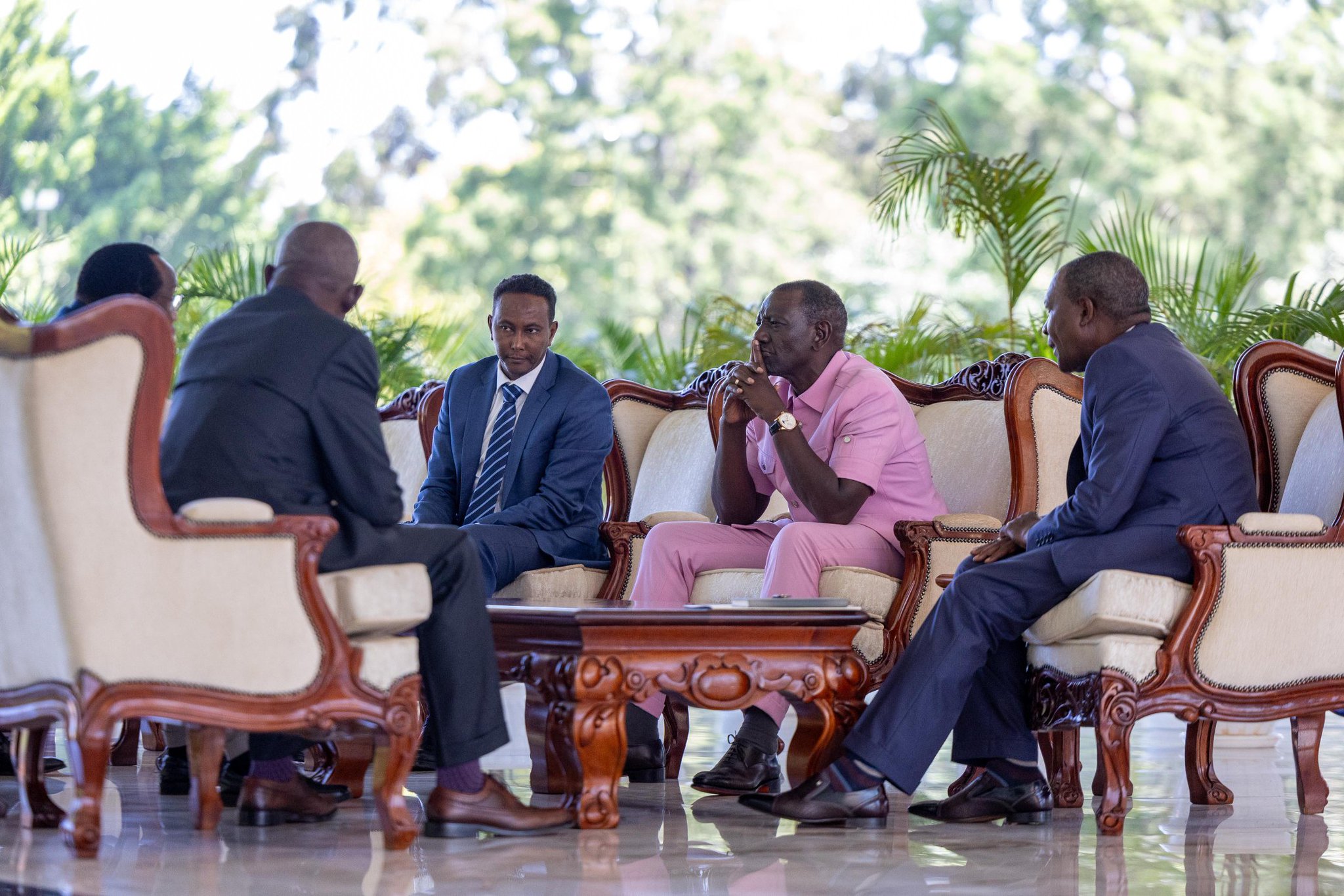News
Finance Bill: M-Pesa, Bank Transaction Charges To Go Up
Mobile and bank transactions in Kenya are likely to go up by at least five percent if the Finance Bill, 2024 is signed into law in its current form.

Mobile and bank transactions in Kenya are likely to go up by at least five per cent if the Finance Bill, 2024 is signed into law in its current form.
According to the Finance Bill, 2024 measures to fund the budget for the financial year starting July 1 seen by the Star shows that the Kenya Kwanza government is proposing a total overhaul of tax relief on transactions introduced in 2022.
According to the proposed law, excise duty on bank transactions has been reverted to 20 per cent from 15 per cent while those on mobile phone transactions like M-Pesa which had been revised to 12 per cent from 15 per cent have been pushed to 20 per cent.
This means telcos are likely to raise transfer and withdrawal charges to cover the additional tax burden.
Today, transferring Sh101-500 on M-Pesa costs Sh7 while users are charged Sh29 as withdrawal charges.
A five per cent increase means that transfer and withdrawal charges will rise to at least Sh7.35 and Sh30.45 respectively.
Those intending to transfer a higher limit of Sh250,000 will now pay Sh113.40 up from the current Sh108. Those withdrawing this upper limit amount will now incur Sh324.50 up from the current Sh309.
Excise duty on bank transactions on banks which had been relaxed to 15 per cent in 2022 has been raised to 20 per cent, an aspect that might trigger costly bank charges.
Although the government aims to boost revenue collection to over 20 per cent of the GDP in the next fiscal year to about Sh2.95 trillion up from Sh2.6 trillion set for the current financial year, high charges on mobile transactions could hurt Kenya’s progress as a digital superhighway.
The government is also planning to raid farmers in a bid to bring more informal players into the tax bracket.
Farmers
According to the proposed law, President William Ruto’s regime is contemplating introducing a five per cent withholding tax on agricultural produce delivered to organized groups such as co-operatives.
The proposed withholding tax will act as an initial step in ensuring that farmers are within the tax net.
The farmers will be expected to account for tax on the income they receive from co-operatives if the proposal in the National Tax Policy and the Medium-Term Revenue Strategy FY 2023/24-2026/27 (MTRS) is implemented.
Additional steps that will be implemented to ensure the collection of additional revenue include the progressive phasing out of preferential corporate tax rates and the rationalization of tax exemptions for corporate entities and individuals.
The National Tax Policy articulates broad guidelines to guide tax administration while the MTRS outlines the specific reforms that will boost revenue collection during the strategy period.
Content creators
The government is also planning to amend Section 2 of the Income Tax Act to expand the definition of digital content monetization to include creative works, creating or sharing of materials, or any other materials that are noted exempted under the Act.
During this period, the government is planning to review the digital service tax (DST) to bring on board residents.
DST is currently payable by non-residents on income derived or accrued in Kenya from services offered through a digital marketplace.
The applicable rate is 1.5 per cent of the gross transaction value. It is not clear whether the DST will be an advance tax for the affected resident or whether it will be the final tax.
The previous government introduced DST alongside VAT on digital market supply.
Starting in January 2021, individuals earning income by offering services or products through online platforms were required to pay this tax.
Furthermore, the law specified that both Kenyan residents and non-residents with permanent establishments in the country could utilize the tax amount as a deduction against their income liability for that particular year.
Last year, Kenya doubled DST to three per cent which earned KRA Sh5.3 billion.
Other changes include the introduction of income tax on repatriated income, and digital asset tax payable by persons who derive income from the transfer or exchange of digital assets.
They include ride-hailing services, food delivery, freelance, professional and rental services.
Although the proposal aims to review upward excise duty on alcoholic beverages, cigarettes, tobacco and sugar-containing products, the bill has given relief to manufacturers of alcoholic drinks and beverages.
The tax proposal now wants them to remit excise duty within five days and not 24 hours from the time the drinks are removed from the stockroom.
This requirement has faced repeated criticism for the reason that it is counterproductive and unfair to demand tax before the manufacturer sells the product and reconciles their sales.
Experts have also argued that the Excise tax is also a consumption and not an advance tax, and for these reasons, we expect that this year, the requirement to pay the tax within 24 hours will be reviewed.
In addition to the above, the government is considering developing a framework that will guide the introduction of a carbon tax in Kenya.
Over and above promoting the generation of additional revenue, this initiative is expected to lower greenhouse gas (GHG) emissions and ensure the State meets its environmental sustainability goals.
In a bid to have free access to data, the Government, according to the MTRS, will pursue an amendment to the Data Protection Act, 2019 to exempt the processing of personal data for purposes of taxation.
Intended reduction of the VAT rate by 1 percent and adjustment of the VAT registration threshold from Sh5 million to Sh8 million.
Kenya Insights allows guest blogging, if you want to be published on Kenya’s most authoritative and accurate blog, have an expose, news TIPS, story angles, human interest stories, drop us an email on [email protected] or via Telegram
-

 Grapevine2 weeks ago
Grapevine2 weeks agoRussian Man’s Secret Sex Recordings Ignite Fury as Questions Mount Over Consent and Easy Pick-Ups in Nairobi
-

 News1 week ago
News1 week agoTHE FIRM IN THE DOCK: How Kaplan and Stratton Became the Most Scrutinised Law Firm in Kenya
-

 Investigations2 weeks ago
Investigations2 weeks agoMulti-Million Dollar Fraud: Three Kenyans Face US Extradition in Massive Cybercrime Conspiracy
-

 Economy1 week ago
Economy1 week agoIran Demands Arrest, Prosecution Of Kenya’s Cup of Joe Director Director Over Sh2.6 Billion Tea Fraud
-

 Business2 weeks ago
Business2 weeks agoA Farm in Kenya’s Rift Valley Ignites a National Reckoning With Israeli Investment
-

 Grapevine6 days ago
Grapevine6 days agoA UN Director Based in Nairobi Was Deep in an Intimate Friendship With Epstein — He Even Sent Her a Sex Toy
-

 Africa2 weeks ago
Africa2 weeks agoFBI Investigates Congresswoman Ilhan Omar’s Husband’s Sh3.8 Billion Businesses in Kenya, Somalia and Dubai
-

 News2 weeks ago
News2 weeks agoTragedy As City Hall Hands Corrupt Ghanaian Firm Multimillion Garbage Collection Tender




























